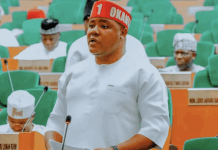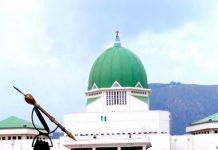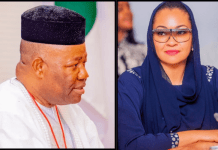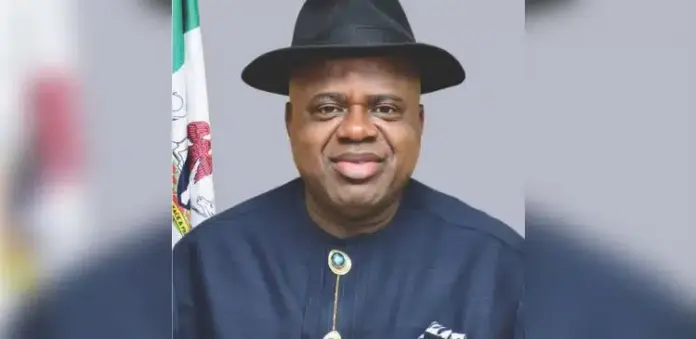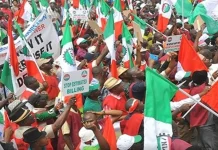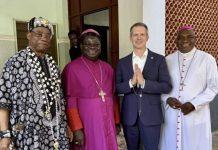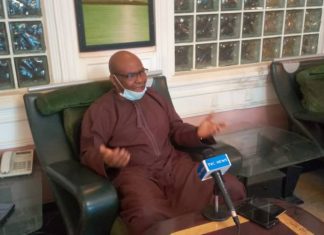In addition to the eight local government units that already exist in the state, Bayelsa State has requested the establishment of 25 more.
The establishment of state police, electoral and judicial reforms, and fiscal federalism were among proposals put up by the state.
At the current public hearing of the House of Representatives’ Committee on the Review of the 1999 constitution, which is being held by the South South Centre A (which includes Bayelsa, Delta, and Edo) at the DSP Alamieyeseigha Banquet Hall in Yenagoa on Saturday, the Attorney General and Commissioner for Justice, Mr. Biriyai Dambo, a Senior Advocate of Nigeria, gave the state’s position.
Since the current local government regions were overcrowded, with some having more than 150 communities, Mr. Dambo claimed that the state needed to establish new councils.
Additionally, the state argued that it had the financial means to support the planned councils, which were established by the House of Assembly in accordance with Section 8(3) of the 1999 Constitution (as modified).
By suggesting that the nation be reorganized according to the ideas of fiscal federalism, Bayelsa proposed that all natural resources, both on and off the coast of the federating states, be fully controlled and that the federal government receive 40% of tax revenue while the states keep 60% of the money generated by their resources.
The establishment of state police, according to the state, will improve states’ ability to combat crime and maintain proper security.
Nigeria was ready for state policing, it was added, and the movement for state police was in line with true federalism.
Reviewing the local government system and autonomy, reviewing the legislative and exclusive lists, strengthening the Independent National Electoral Commission through electoral changes, and implementing judicial reforms were all equally important components of the state’s stance.
The fundamental right of the people to modify the constitution that established their government is the cornerstone of every strong democracy, according to remarks made earlier by Senator Douye Diri, the governor of Bayelsa State.
A review, he said, guarantees that the constitution is not a static document but rather a living tool that changes to meet the evolving needs and goals of the people.
“Really just, equitable, responsive, and demonstrably dedicated to the holistic development of not just the state or the Niger Delta region but also the Nigerian federation,” Governor Diri emphasized, was the core of Bayelsa State’s demands: a strong commitment to the establishment of a federal system and structure.
In addition, he said that the people of Bayelsa wanted “historical injustices related to the inequitable allocation of resources, alongside the glaring disparities in the creation and distribution of local government areas fixed.”
Delta State Governor Rt. Hon. Sheriff Oborevwori was represented at the occasion by his deputy, Sir Monday Onyeme, while Attorney General Samson Osagie represented his counterpart, Senator Monday Okpebolo.
Both governors endorsed the constitution review exercise, claiming it would fix the existing constitution’s shortcomings and close its gaps.
Read Also: Saudi Prince passed away after spending 20 years in coma
They also pointed out how contentious the 1999 constitution had grown.
Moreover, the South South Center chairman Prior to being presented on the House floor, each document would undergo a thorough assessment and presentation to the entire Constitution assessment Committee, according to Prof. Julius Ihonvbere, the House of Representatives’ majority leader and a committee member.
According to Ihonvbere, the involvement of stakeholders would improve Nigeria and make it more democratic and inclusive of all people.
Representatives from the state, including Dr. Fred Agbedi (Sagbama/Ekeremor Federal Constituency), Mrs. Marie Ebikake (Nembe/Brass), Dr. Mitema Obordor (Ogbia), and Rodney Ambaiowei (Southern Ijaw), as well as Speaker of the Bayelsa State House of Assembly Rt. Hon. Abraham Ingobere and his Delta State counterpart Emomotimi Guwor, were in attendance.
The Amanyanabo of Twon-Brass, King Alfred Diete-Spiff, King Bubaraye Dakolo, the chairman of the state council of traditional rulers, and other dignitaries from Bayelsa, Delta, and Edo states were also in attendance.
Join Television Nigerian Whatsapp Now
Join Television Nigerian Facebook Now
Join Television Nigerian Twitter Now
Join Television Nigerian YouTUbe Now

